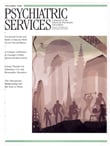Guidelines for the use of placebo controls in clinical trials of psychopharmacologic agents. Loma Linda University Institutional Review Board
Abstract
Federal regulations governing pharmacologic research require scientific proof of efficacy. Although these regulations are often interpreted to mean that a placebo-controlled trial is necessary, it is difficult to justify use of placebo controls when effective standard therapy exists. Justification is especially problematic in psychopharmacologic research because of the added concern that subjects with compromised decision- making capacity cannot give valid consent. To promote discussion and consensus, this article presents guidelines for the ethically justifiable use of placebo controls in research with psychopharmacologic agents. The guidelines, developed by a university's institutional review board, are designed to help investigators design studies and to protect vulnerable subjects.
Access content
To read the fulltext, please use one of the options below to sign in or purchase access.- Personal login
- Institutional Login
- Sign in via OpenAthens
- Register for access
-
Please login/register if you wish to pair your device and check access availability.
Not a subscriber?
PsychiatryOnline subscription options offer access to the DSM-5 library, books, journals, CME, and patient resources. This all-in-one virtual library provides psychiatrists and mental health professionals with key resources for diagnosis, treatment, research, and professional development.
Need more help? PsychiatryOnline Customer Service may be reached by emailing [email protected] or by calling 800-368-5777 (in the U.S.) or 703-907-7322 (outside the U.S.).



